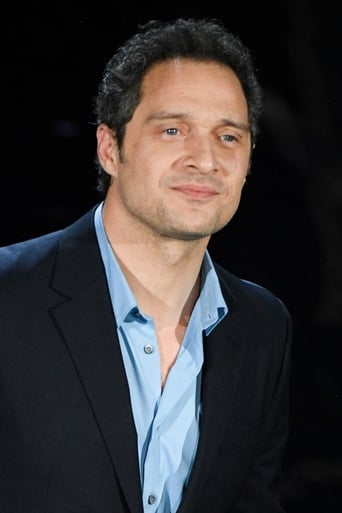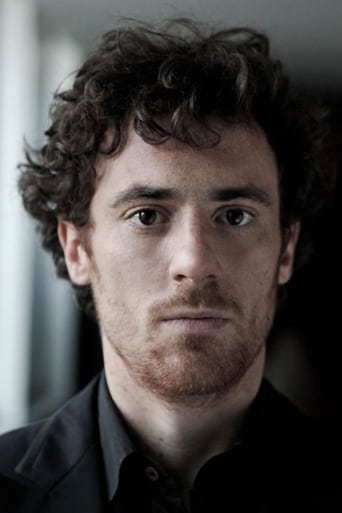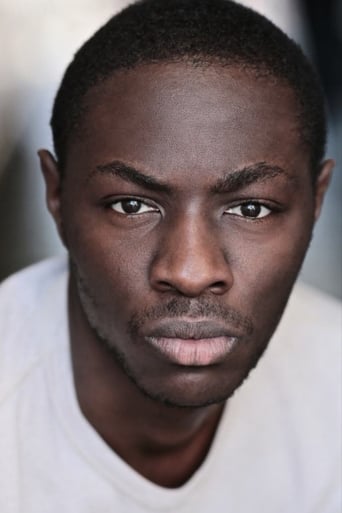PiraBit
if their story seems completely bonkers, almost like a feverish work of fiction, you ain't heard nothing yet.
KnotStronger
This is a must-see and one of the best documentaries - and films - of this year.
Tyreece Hulme
One of the best movies of the year! Incredible from the beginning to the end.
Frances Chung
Through painfully honest and emotional moments, the movie becomes irresistibly relatable
Marcus Nessuno
In Late April 2009, I got a call in London to come to Genova to meet several mystery guests who wanted to meet me and several of the other Diaz victims. I was coming anyway to see Dr Zucca (The Genova prosecutor) but I was intrigued to find out who the mystery guests were. I met Domenico Procacci and Daniele Vicari in Genova at the Via San Luca office (where the Diaz case is archived) in late May for a 'secret weekend meeting' after the Cannes Film Festival.At the time, I did not know who Procacci and Vicari were but I was told they were the best film producer and director in Italy and they wanted to make a movie of the raid on Diaz during the G8. I had seen Gomorrah, Procacci's mafia film and thought it was brilliant. Using this film as a comparison, I listened to what Domenico wanted to say to all of us present. Procacci explained to us that he had wanted to make a multi-million euro film about the raid for a long time but had been prevented because the trial process against the police.He was willing to risk a lot of money on the project and we could all see that Domenico and Daniele were committed to making the movie. I personally told them that whilst I had a lot of personal confidence, I thought the Diaz police would try and stop the project or the right ring politicians like Berlusconi or Fini my sue Fandango. I also told them that Diaz is still live court case and that they had to do a lot of research.After all of us from Diaz consulted with each other, we gave Domenico Procacci and Daniele Vicari permission to make the film. All of us were taking a risk allowing a production company like fandango access to the video evidence & photos and documents involved in the trial. However, we all felt that the story of the raid and what we had lived through had to be told to the rest of the world.What is unusual about the Diaz movie was that there was no script in existence, so Fandango commissioned Laura Paolucci to spend two years writing a script. The end result is a pulp fiction style film which is 80% true to the story of Diaz. Obviously, Vicari could not go into detail about the entire G8 which forms the backdrop for the beginning of the film but I think Vicari has done an almost perfect job of marrying together true events with a few high drama fictional characters.I think the combination of powerful high impact footage, recreated scenes and the chance of lifting the lift on the inside of the anti-globalization movement makes Diaz the movie a special film. The 2001 G8 was the biggest and worst riot in Europe in 60 years. To complete the film, Vicari has combined the usual high quality style of Italian film screening to capture this important moment of history, making it one of the best, most talked about and most controversial films to come out of Italy in 20 years.Only after the film had premiered in Berlin did I learn that Procacci had said that Diaz had been his most challenging and complicated film to make…with Vicari in agreement.My story is played by an Italian actor Pietro Ragusa and my almost death is one of the penultimate scenes in the movie. Because I ran out of Diaz, I took the full force of Canterini's unit, the 7th Mobile heavy riot unit that had specially trained for the Genova G8 summit. Pietro's part is almost as it exactly happened and I am very happy despite the scene is one of the most harrowing.
hkarlovac
People need to understand that this is a *drama* not a documentary. Drama as in the dramatization. It was a terrible event in actuality, but this goes way overboard in depicting brutalization just for the shockfactor, of which there is plenty. It goes completely overboard. Actually, the filmmakers should be ashamed of themselves for exploiting what happened just to make a buck. It is very unfortunate that some ignorant people will assume that just because it is in a movie it is true. It is not. This film is a classic communist style "agitprop" film: agitation propaganda, made for the purpose of provoking the audience to action. Action in ignorance is as bad as no action. While people have a right to be outraged on the basis of an actual documentary or reading actual news accounts, this piece of fiction is not it.
lasttimeisaw
A KVIFF viewing, an Italian film from director Daniele Vicari, the film undertakes a sticky task to recount the fierce police assault on the so-called black-bloc group (mostly foreigners, students, journalists) after some protesters' affray in the final days of 2001 G8 Summit in Genova.The film's chief characteristic is its visual language, shockingly bold and deadly savage, which inevitably will be shunned by the demography of those are intolerable of graphic violence. One must admit, we are now in the era where news generally fade away in a 48-hour rotation, there are myriads of mostly recent "unfortunate incidents" have been erased from our mind, so as to this film takes a quite extreme measurement to remind us such horrifying and atrocious events did actually exist only a decade ago in a developed western country, with government authorities holding the reins. The very first scene, is a backward slow-motion of a protester slinging an empty bottle toward the police vehicles which are deliberately passing by the area, in order to procure a professed pretext to carry out the subsequent battery, so allegedly the entire action is ruthlessly plotted to set an example and to hector the masses. Two-thumbs up to the valor of the film, which fearlessly exposes the dark side of the government and the powerlessness of individual. But when the said slow-motion has been exploited multiple times, a dwindling impact inexorably occurs each time it recurs.Due to the fact the approach of depicting this scandalizing event in a multi-reflective manner, it entails a wide range of characters, local volunteers, various foreigners (among those are many innocent victims and the real peace-breakers who ironically evade the brute force), policemen who execute the operation, The numerous cast diffuses one's concentration while most roles are underwritten and loosely connected or fragmented, nevertheless Jennifer Ulrich gives a gutsy impression as a victim traumatized both outside and inside, Claudio Santamaria, also stands out among the bulk of cast, as the righteous Italian policeman who is more of a reluctant witness than a government's henchman or heavy.Anyway, with excellent editing, sound effects and a steady camera eye, the film is a quite mature work, on which one definitely could ruminate and alert oneself to be more conscious of the tragic happenings, they are just around us, be wise and be careful.
catacomb-kitten
Seriously. I walked out of it somewhat disorientated and still shaken. I saw 'Diaz - Don't clean up this Blood' about a month ago at its Berlinale Screening and it still haunts me. I could tell that most of the audience shared my feelings and some even left the cinema, because they couldn't bear what they were seeing. Nevertheless the applause was extraordinary. We have all seen our fair share of violence and cruelty in the movies. But this is a completely different pair of shoes. The non-fictional background of the film plot concerns me personally, both as a human being and as an European citizen. It's hard to imagine this happened ten years ago in a Western European country and yet it DID happen and it could - and probably will - happen again. That's why it is so important to deal with the topic of police violence instead of ignoring it or playing it down. The film crew and cast did a great job capturing the horror of this disastrous event. And that's what 'Diaz' mainly seems to be about: re-creating and contextualizing the occurred violations of human rights in 2001 in Italy as authentic and accurate as it can be done in a feature film. It obviously wants you to be shocked, but with good reasons: it describes shocking incidents, which should not be trivialized. If you do some research, you'll find out that the film indeed does not exaggerate anything. But it does NOT inform you about the political background, you have to inform yourself. And I think you will, after you've seen it.'Diaz' is not entirely flawless, but it could be a film of great significance, provided that it motivates the audience to read up on the subject.If you're interested in a less gripping, but much more informative approach on the matter, check out the documentary "The Summit" (2012).




